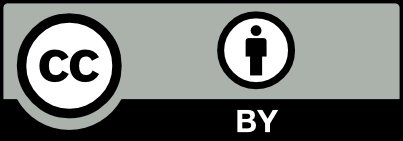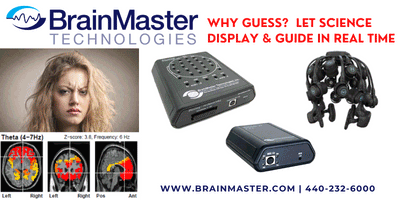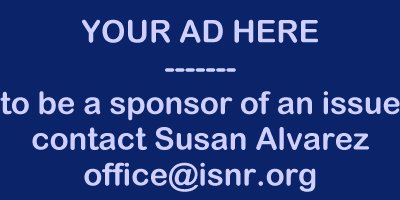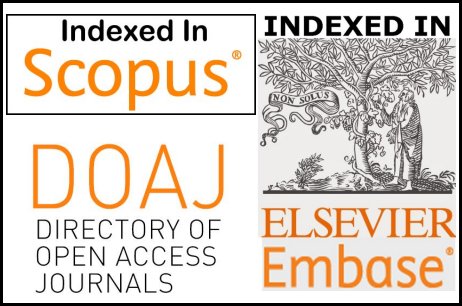Improving Short-Term Memory Performance of Healthy Young Males Using Alpha Band Neurofeedback
DOI:
https://doi.org/10.15540/nr.6.1.15Keywords:
Short-term memory, Neurofeedback, Alpha band.Abstract
To examine whether it was possible to improve short-term memory performance of healthy participants by increasing relative alpha band power (7–11.5 Hz) using neurofeedback, we first converted a commercial EEG device (EmotivEpoc) to a neurofeedback tool and collected data from 11 healthy Turkish male graduate students in five neurofeedback sessions. Before and after neurofeedback training, a memorization task using 10 English words and their Turkish meanings was applied to all participants. The results indicated that 6 out of 11 participants were able to enhance their relative alpha band power with respect to other bands in the frequency spectrum during neurofeedback sessions. Although there was no obvious improvement in their short-term memory performance, we may conclude that neurofeedback training was beneficial for the participants to focus their minds consciously. However, it is not easy to mention that neurofeedback training certainly improved or was irrelevant with short-term memory performance. This study is important in the sense that for such a focused group the use of a commercial, customized low-cost EEG device was shown to be feasible for neurofeedback training sessions.
References
Bauer, R. H. (1976). Short-term memory: EEG alpha correlates and the effect of increased alpha. Behavioral Biology, 17(4), 425–33. http://dx.doi.org/10.1016/S0091-6773(76)90793-8
Coben, R., Linden, M., & Myers, T. E. (2010). Neurofeedback for autistic spectrum disorder: A review of the literature. Applied Psychophysiology and Biofeedback, 35(1), 83–105. http://dx.doi.org/10.1007/s10484-009-9117-y
Collura, T. F. (2000). Practical issues concerning EEG biofeedback devices, protocols and methods. Retrieved November 20, 2017 from http://openeeg.sourceforge.net/arch/att-0944/01-part
Conway, A. R. A., Cowan, N., Bunting, M. F., Therriault, D. J., & Minkoff, S. R. B. (2002). A latent variable analysis of working memory capacity, short-term memory capacity, processing speed, and general fluid intelligence. Intelligence, 30(2), 163–183. http://dx.doi.org/10.1016/S0160-2896(01)00096-4
Escolano, C., Aguilar, M., & Minguez, J. (2011, August). EEG-based upper alpha neurofeedback training improves working memory performance. Paper presented at the 33rd Annual International Conference of the IEEE Engineering Medicine and Biology Society, Boston, MA. http://dx.doi.org/10.1109/IEMBS.2011.6090651
Friel, P. N. (2007). EEG biofeedback in the treatment of attention deficit hyperactivity disorder. Alternative Medicine Review, 12(2), 146–151.
Gruzelier, J., Egner, T., & Vernon, D. (2006). Validating the efficacy of neurofeedback for optimising performance. Progress in Brain Research, 159, 421–431. http://dx.doi.org/10.1016/S0079-6123(06)59027-2
How Accurate Is Your Detection? (2019, January 11). Retrieved from https://emotiv.zendesk.com/hc/en-us/articles/204993629-How-accurate-is-your-detection-
Klimesch, W. (1997). EEG-alpha rhythms and memory processes. International Journal of Psychophysiology, 26(1–3), 319–340. http://dx.doi.org/10.1016/S0167-8760(97)00773-3
Klimesch, W. (1999). EEG alpha and theta oscillations reflect cognitive and memory performance: A review and analysis. Brain Research Reviews, 29(2–3), 169–195. http://dx.doi.org/10.1016/S0165-0173(98)00056-3
Klimesch, W., Doppelmayr, M., Pachinger, T., & Ripper, B. (1997). Brain oscillations and human memory: EEG correlates in the upper alpha and theta bands. Neuroscience Letters, 238(1–2), 9–12. http://dx.doi.org/10.1016/s0304-3940(97)00771-4
Kober, S. E., Schweiger, D., Witte, M., Reichert, J. L., Grieshofer, P., Neuper, C., & Wood, G. (2015). Specific effects of EEG based neurofeedback training on memory functions in post-stroke victims. Journal of NeuroEngineering and Rehabilitation, 12, 107. http://dx.doi.org/10.1186/s12984-015-0105-6
Lecomte, G., & Juhel, J. (2011). The effects of neurofeedback training on memory performance in elderly subjects. Psychology, 2(8), 846–852. http://dx.doi.org/10.4236/psych.2011.28129
Marzbani, H., Marateb, H. R., & Mansourian, M. (2016). Neurofeedback: A comprehensive review on system design, methodology and clinical applications. Basic and Clinical Neuroscience, 7(2), 143–158. http://dx.doi.org/10.15412/J.BCN.03070208
Nan, W., Rodrigues, J. P., Ma, J., Qu, X., Wan, F., Mak, P.-I., … Rosa, A. (2012). Individual alpha neurofeedback training effect on short-term memory. International Journal of Psychophysiology, 86(1), 83–87. http://dx.doi.org/10.1016/j.ijpsycho.2012.07.182
Reis, J., Portugal, A. M., Fernandes, L., Afonso, N., Pereira, M., Sousa N., & Dias N. S. (2016). An alpha and theta intensive and short neurofeedback protocol for healthy aging working-memory training. Frontiers in Aging Neuroscience, 8, 157. http://dx.doi.org/10.3389/fnagi.2016.00157
Ros, T., Moseley, M. J., Bloom, P. A., Benjamin, L., Parkinson, L. A., & Gruzelier, J. H. (2009). Optimizing microsurgical skills with EEG neurofeedback. BMC Neuroscience, 10, 87. http://dx.doi.org/10.1186/1471-2202-10-87
Sokhadze, T. M., Cannon, R. L., & Trudeau, D. L. (2008). EEG biofeedback as a treatment for substance use disorders: Review, rating of efficacy, and recommendations for further research. Applied Psychophysiology and Biofeedback, 33(1), 1–28. http://dx.doi.org/10.1007/s10484-007-9047-5
Sterman, M. B., & Egner, T. (2006). Foundation and practice of neurofeedback for the treatment of epilepsy. Applied Psychophysiology and Biofeedback, 31(1), 21–35. http://dx.doi.org/10.1007/s10484-006-9002-x
Vernon, D., Egner, T., Cooper, N., Compton, T., Neilands, C., Sheri, A., & Gruzelier, J. (2003). The effect of training distinct neurofeedback protocols on aspects of cognitive performance. International Journal of Psychophysiology, 47(1), 75–85. http://dx.doi.org/10.1016/S0167-8760(02)00091-0
Wang, J.-R., & Hsieh, S. (2013). Neurofeedback training improves attention and working memory performance. Clinical Neurophysiology, 124(12), 2406–2420. http://dx.doi.org/10.1016/j.clinph.2013.05.020
Wang, Z. (2017). Neurofeedback training intervention for enhancing working memory function in attention deficit and hyperactivity disorder (ADHD) Chinese students. NeuroQuantology, 15(2), 277–283. http://dx.doi.org/10.14704/nq.2017.15.2.1073
Zoefel, B., Huster, R. J., & Herrmann, C. S. (2011). Neurofeedback training of the upper alpha frequency band in EEG improves cognitive performance. NeuroImage 54(2), 1427–1431. http://dx.doi.org/10.1016/j.neuroimage.2010.08.078
Downloads
Published
Issue
Section
License
Authors who publish with this journal agree to the following terms:- Authors retain copyright and grant the journal right of first publication with the work simultaneously licensed under a Creative Commons Attribution License (CC-BY) that allows others to share the work with an acknowledgement of the work's authorship and initial publication in this journal.
- Authors are able to enter into separate, additional contractual arrangements for the non-exclusive distribution of the journal's published version of the work (e.g., post it to an institutional repository or publish it in a book), with an acknowledgement of its initial publication in this journal.
- Authors are permitted and encouraged to post their work online (e.g., in institutional repositories or on their website) prior to and during the submission process, as it can lead to productive exchanges, as well as earlier and greater citation of published work (See The Effect of Open Access).










